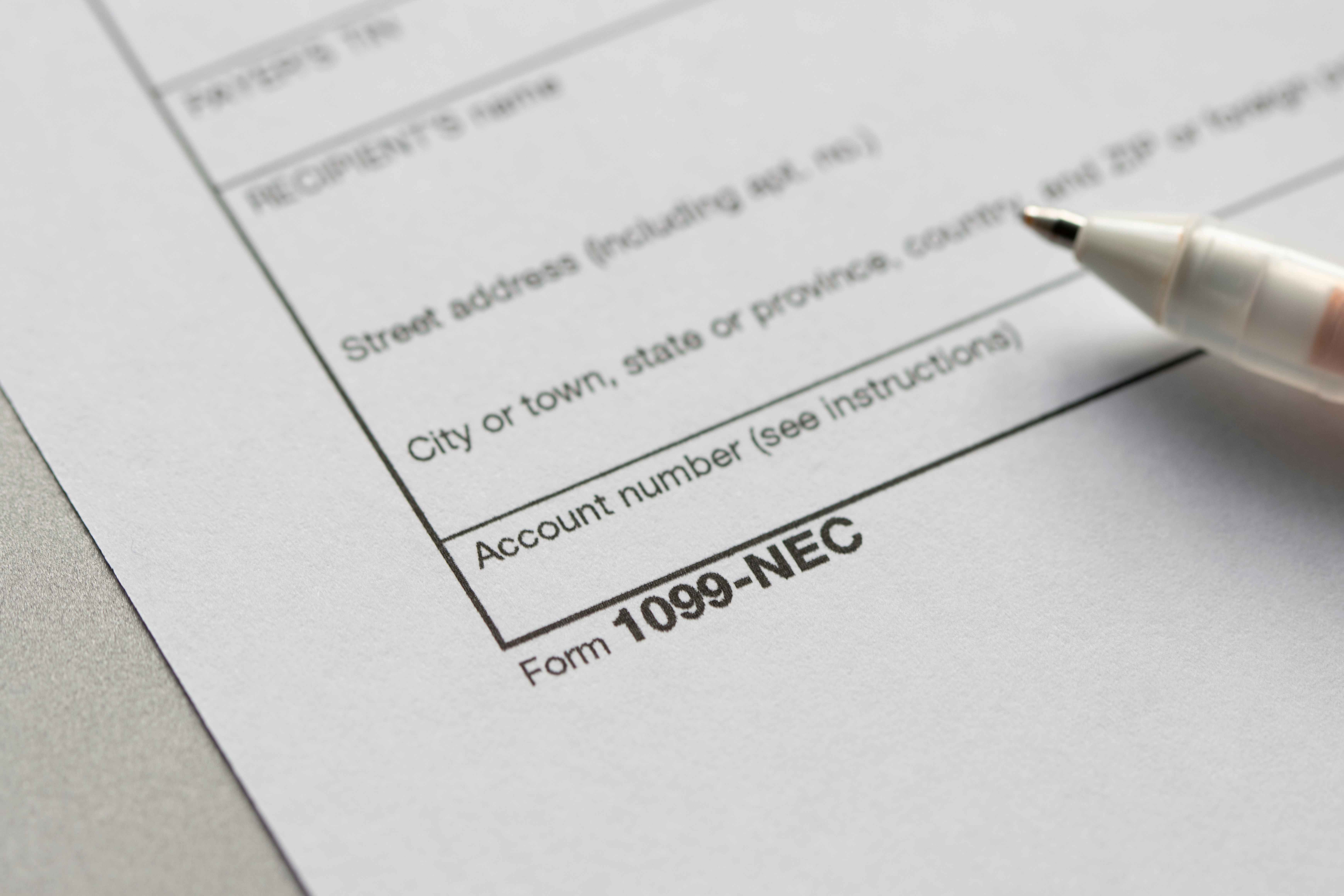Explore how the One Big Beautiful Bill Act could change tip, overtime, and 1099 reporting requirements for small and micro business owners.
A Big Bill, Big Changes, Especially for Small Businesses
Congress officially passed the One Big Beautiful Bill Act (OBBBA), also known as the 2025 Tax and Spending Bill, in July 2025. This legislation touches on topics from personal tax cuts to new rules for how small businesses report wages, especially tips and overtime.
For small business owners—especially those who manage payroll or issue 1099s on their own—the updates could bring relief and new considerations. While this post does not provide tax or legal advice, it offers an overview you can use to start a conversation with your accountant, bookkeeper, or payroll provider.
A Quick Overview of the One Big Beautiful Bill Act
The OBBBA is designed to modernize parts of the U.S. tax code and extend several business incentives set to expire in 2025. Many of its provisions take effect beginning with the 2025 tax year and aim to make tax reporting simpler for individuals and small business owners.
In short, this legislation attempts to:
- Extend certain individual tax cuts.
- Simplify small business reporting rules.
- Encourage business investment through bonus depreciation and R&D expensing.
- Offer relief to service-sector employees through new tip and overtime tax changes.
Key Changes Small Business Owners Should Know
1. A Higher 1099 Reporting Threshold
One of the most discussed changes is the increase reporting thresholds for Forms 1099-MISC, 1099-NEC, and 1099-K. This means businesses may need to issue fewer 1099 forms to contractors and freelancers.
Starting in 2026, the annual reporting threshold increases from $600 in compensation to $2,000 in compensation for 1099-MISC and 1099-NEC forms. The threshold will be indexed for inflation starting in 2027.
For Form 1099-K, the threshold reverts to $20,000 and 200 transactions, retroactive to 2022.
For small business owners, solopreneurs, and freelancers, that could mean less administrative paperwork and fewer filings during tax season. It’s important to check with your tax professional to confirm how this rule applies to your situation, especially if you pay multiple contractors in smaller amounts.

2. No Federal Tax on Tips
Some tips may no longer be subject to federal income tax for tax years 2025 through 2028. The OBBBA introduced a federal no tax on tips deduction of up to $25,000 for qualified tips received by workers. Individuals are only eligible to deduct tips if they work in one of the 68 specified job types that traditionally receive tips specified by the U.S. Department of Treasury
It’s important to note that tips remain subject to FICA (Social Security and Medicare) taxes.
That’s potentially big news for service-based businesses—from coffee shops and salons to restaurants and event staff—where tips make up a large share of employee earnings.
Employers will need to track and report qualified tips separately on W-2s.
3. Overtime Tax Relief
In addition to tip changes, the OBBBA also includes federal tax relief for overtime pay for tax years 2025 through 2028. Workers may deduct up to $12,500 in qualified overtime pay from their federal taxable income.
This means employers will need to track qualifying overtime separately for accurate W-2 reporting.
For small business owners, this update might affect how you calculate and report payroll. Whether you process payroll manually or use automated payroll software, it’s a good idea to confirm your overtime tracking aligns with the new rules.
4. Other Small Business Provisions to Watch
Beyond payroll and reporting, the One Big Beautiful Bill Act includes several business-friendly incentives that could impact your operations:
- SALT Deduction Cap Adjustment: The state and local tax (SALT) deduction limit will temporarily rise to $40,000 for joint filers starting in 2025, phasing out for higher-income taxpayers. It reverts to $10,000 in 2030.
- Bonus Depreciation Restored to 100%: Businesses can once again claim full bonus depreciation on qualified new or used equipment.
- R&D Expensing Reinstated: Companies can immediately expense 100% of research and development costs, including software development, with retroactive relief to 2022 for qualifying businesses.
These changes could make it easier for small businesses to invest, innovate, and grow—but the details can vary depending on your entity type and state. It’s best to check with your finance or tax professional to see how these provisions may impact you or your small business.
OBBA Impact on Tax Forms
The IRS has announced that it will not make changes to the existing Form W-2 or to the withholding tables for tax year 2025. The IRS is instructing employers to use current reporting and withholding procedures for qualified tips and overtime compensation temporarily. The agency has released a Form W-2 draft for tax year 2026. Employers will need to report qualified tips and overtime and indicate the employee's occupation on the new Form W-2.
The IRS released a draft Form Schedule 1-A in September for individuals who may want to claim one of several deductions when filing taxes in 2025 to use. The form is not official yet and is subject to change.
The draft W-4 for 2026, released in October 2025, indicates it will include changes to reflect the new law, including factoring in the new tip and overtime deductions on the deduction worksheet. Once the 2026 W-4 is finalized, if an employee fills out a new W-4 to account for these deductions, their federal income tax withholding may be reduced, translating into a potential increase in each paycheck.
When the forms are finalized, the IRS will post them for use at www.irs.gov/latestforms.
What These Changes Could Mean for Your Business
Every small business will experience these updates differently. Here are a few examples:
- For a solopreneur who hires contractors occasionally, a higher 1099 threshold may mean less paperwork and lower administrative costs starting in 2026.
- For a small restaurant or salon, the no tax on tips and overtime tax relief for workers means employers must track qualifying income separately for IRS reporting.
- For a growing small business, expanded bonus depreciation and R&D expensing might make it easier to invest in new tools or technology.
Ultimately, these changes are designed to help make running a small business simpler and more cost-effective—but it’s wise to confirm exactly how they apply to your situation.
How to Prepare for the Year Ahead
The best way to stay ready for new payroll and tax rules is to plan ahead:
- Check your payroll system: Ensure your software or provider is preparing for new 1099, overtime, and tip reporting rules.
- Keep clear records: Document payments to contractors, qualified tips received, and qualified overtime paid throughout the year.
- Meet with your accountant or bookkeeper: They can help you understand which provisions apply to your business.
- Stay informed: Bookmark trusted sources like the IRS, specifically the One Big Beautiful Bill provisions page.
Simplify Payroll with SurePayroll
If you’re still handling payroll manually, this may be the perfect time to simplify with an online small business payroll service like SurePayroll® By Paychex.
We help make it easier for small businesses to run payroll— even when tax laws change.
This content is for educational purposes only, is not intended to provide specific legal advice, and should not be used as a substitute for the legal advice of a qualified attorney or other professional. The information may not reflect the most current legal developments, may be changed without notice and is not guaranteed to be complete, correct, or up to date







-min%20(1).avif)
-min.avif)
-min.webp)




